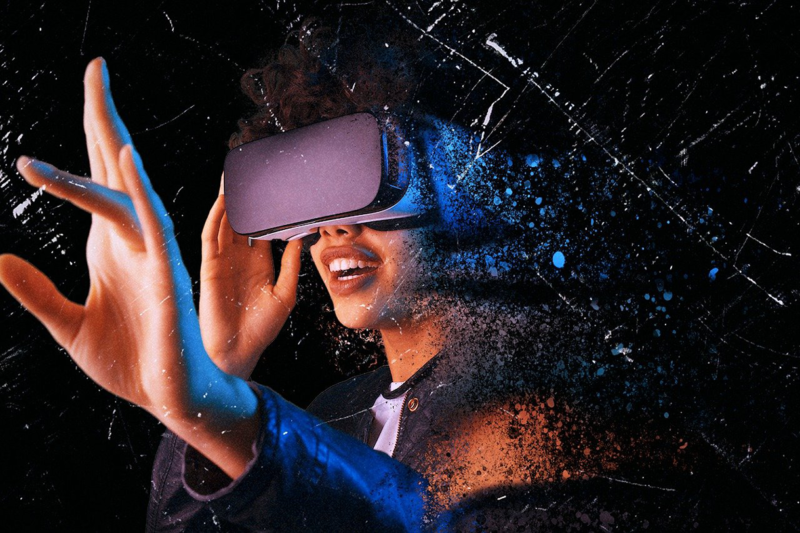Understanding the Metaverse: How It Will Change the Way We Live, Work, and Play
October 30, 2024

The concept of the metaverse has captured global attention, promising to revolutionize the way we interact with the digital world. As a fully immersive virtual environment, the metaverse merges physical and digital realities, creating a space where people can socialize, work, shop, and play in entirely new ways. This guide explores what the metaverse is and how it will transform our lives.
1. What is the Metaverse?
The metaverse is a collective virtual space that combines augmented reality (AR), virtual reality (VR), and the internet to create an immersive, interconnected experience. Unlike traditional online experiences, the metaverse allows users to navigate a virtual world as avatars, interact with others, and engage in digital environments that feel remarkably real.
- Example: Platforms like Decentraland and Meta’s Horizon Worlds are early examples of metaverse environments where users can socialize, attend events, and create content.
2. How the Metaverse Will Change Work
The metaverse has the potential to transform the way we work by enabling remote collaboration in 3D environments. Virtual offices and meeting rooms allow employees to work together in real-time, creating a sense of presence that’s often missing in traditional video conferencing.
- Example: VR platforms like Spatial and Meta’s Horizon Workrooms provide virtual meeting spaces where teams can collaborate as if they were in the same room.
3. Socializing and Entertainment in the Metaverse
Social interactions in the metaverse are more immersive, offering opportunities to connect through games, events, and shared experiences. Users can attend concerts, art shows, and even explore virtual cities with friends from around the world.
- Example: Platforms like Fortnite and Roblox have hosted virtual concerts attended by millions, showcasing the social potential of the metaverse.
4. The Future of Shopping
Shopping in the metaverse will be a unique experience, with virtual stores allowing customers to browse products, try on clothes with digital avatars, and purchase items in both digital and physical formats.
- Tip: Retailers like Nike and Gucci have already launched virtual stores, allowing customers to shop for exclusive digital items and try out products virtually.
5. The Role of Digital Real Estate
Digital real estate is emerging as a valuable asset in the metaverse, with users purchasing land to build virtual homes, businesses, and attractions. Digital property ownership allows individuals and companies to create experiences, host events, and earn income within virtual worlds.
- Example: Platforms like Decentraland and The Sandbox allow users to buy, sell, and develop virtual land, with some properties selling for millions of dollars.
6. Education and Training in the Metaverse
The metaverse opens up new opportunities for interactive learning. Educational institutions and companies can create virtual classrooms and training simulations, offering hands-on experiences that traditional learning environments cannot.
- Example: Medical students can practice surgical procedures in VR, while engineers can simulate complex machinery operations, enhancing their skills through immersive training.
7. The Impact on Privacy and Security
With the metaverse comes the need for robust privacy and security measures. Personal data will be even more integrated into virtual environments, raising concerns about data protection and user safety.
- Tip: Users should be cautious about sharing personal information, and platforms must prioritize data encryption and secure user identities in the metaverse.
8. The Role of NFTs and Digital Assets
Non-Fungible Tokens (NFTs) play a key role in the metaverse, allowing users to own and trade unique digital assets. From art and fashion to virtual real estate, NFTs enable true ownership in the digital world.
- Example: Artists and creators sell NFT artwork in virtual galleries, while gamers trade NFT items that have real-world value in virtual marketplaces.
9. Economic Opportunities and the Gig Economy
The metaverse will likely bring about new economic opportunities, with users earning income through virtual services, content creation, and digital goods. The metaverse gig economy could encompass roles like virtual tour guides, digital architects, and content curators.
- Tip: Creatives and entrepreneurs can explore opportunities in the metaverse to build businesses, create virtual products, and connect with global audiences.
10. Environmental and Ethical Considerations
While the metaverse offers exciting possibilities, there are environmental and ethical implications to consider. The infrastructure required for VR and blockchain-based platforms can have significant energy demands, raising concerns about sustainability.
- Tip: Advocating for energy-efficient technologies and environmentally-friendly practices within the metaverse can help address these concerns.
Conclusion
The metaverse represents a new frontier in digital interaction, offering transformative possibilities in how we live, work, and play. As it continues to evolve, the metaverse will blur the lines between the physical and virtual worlds, reshaping the way we experience reality. While it promises exciting opportunities, navigating the metaverse will require mindful engagement to maximize its benefits and address its challenges.








